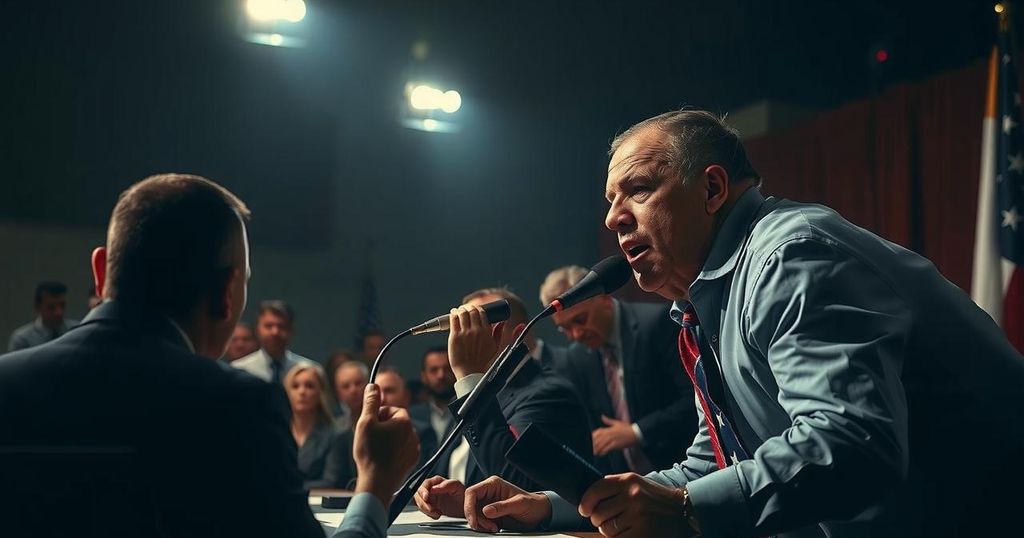The presidential election runoff in Uruguay signifies a competitive race between incumbent Álvaro Delgado and challenger Yamandú Orsi, following a previous election that resulted in no clear majority. The electoral competition has intensified, with candidates focusing on key issues such as public safety and economic policies. Approximately 10% of voters remain undecided as the nation prepares for voting on November 26.
Uruguay’s presidential election, once perceived as unremarkable, has evolved into a fiercely contested runoff as voters prepare to select their next leader. With the Broad Front coalition’s Yamandú Orsi facing off against Álvaro Delgado from the National Party, the race has intensified since neither candidate secured a majority in the initial vote held on October 27. Orsi’s coalition garnered 44% of the vote, while Delgado’s party received 27%, with additional conservative factions adding support for Delgado, who is seeking to maintain the governing coalition’s influence.
The electoral atmosphere reflects a transformation in voter engagement, driven by heightened concerns over public safety and crime amidst a backdrop of economic growth and recent corruption scandals affecting the government. Orsi, a former history teacher, is campaigning for policy reforms that focus on social welfare and agriculture, while Delgado, a seasoned political figure, promotes the continuity of President Luis Lacalle Pou’s economic policies. Polls indicate a statistically close race, with key issues such as taxation and public safety dominating discussions as both candidates appeal to a largely undecided electorate.
As Uruguayans prepare to head to the polls on November 26, the outcome remains uncertain amidst a backdrop of voter apprehension and a notable lack of extreme political polarization, reflecting Uruguay’s stable democratic tradition. This election, described by analysts as unusually normal, might redefine the country’s political narrative while signifying the enduring strength of its democracy.
In the context of the 2024 presidential election in Uruguay, the political landscape has shifted towards heightened competition as the runoff approaches. The Broad Front coalition, comprising a range of leftist parties, faces the incumbent National Party candidate who represents continuity after President Luis Lacalle Pou’s administration. The June elections initially showcased a split electorate, leading to a runoff situation that has prompted both candidates to adapt their strategies in engaging a population increasingly concerned about economic and social stability, demonstrating Uruguay’s political resilience amidst evolving challenges.
The upcoming presidential runoff in Uruguay encapsulates a pivotal moment in the country’s political journey, showcasing how traditional party lines can transform under the weight of contemporary voter concerns. As Yamandú Orsi and Álvaro Delgado prepare for a close election, the climate suggests a decision that may not only determine the next president but also influence Uruguay’s societal and economic trajectory for years to come. The election will be a litmus test for the effectiveness of Uruguayan democracy, characterized by mature political discourse and public engagement.
Original Source: apnews.com






